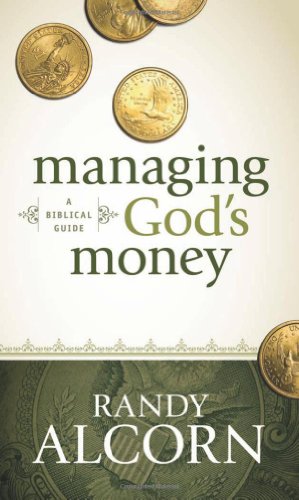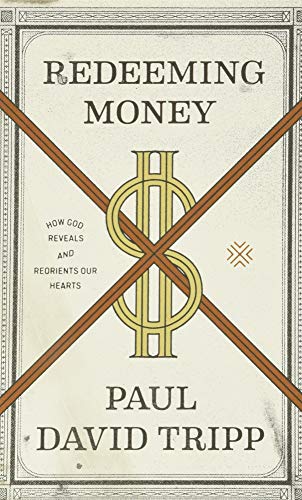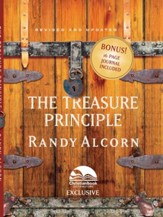Quotes about Stewardship-Money
God doesn’t look at just what we give. He also looks at what we keep.
The Treasure Principle, 2002, p. 63, Used by Permission from Eternal Perspective Ministries, www.epm.org. Get this book!
If God was the owner, I was the manager. I needed to adopt a steward’s mentality toward the assets He had entrusted – not given – to me. A steward manages assets for the owner’s benefit. The steward carries no sense of entitlement to the assets he manages. It’s his job to find out what the owner wants done with his assets, then carry out his will.
The Treasure Principle, 2002, p. 24, Used by Permission from Eternal Perspective Ministries, www.epm.org. Get this book!
Your children should love the Lord, work hard, and experience the joy of trusting God. More important than leaving your children an inheritance is leaving them a spiritual heritage. If you left your children money they didn’t need, and if they were thinking correctly, wouldn’t they give it to God anyway? Then why not give it to God yourself, since He entrusted it to you?
The Treasure Principle, 2002, p. 70-71, Used by Permission from Eternal Perspective Ministries, www.epm.org. Get this book!
You may think, No problem there. I’m putting my church and ministries in my will. By all means, do your estate planning and give heavily to God’s kingdom. But what kind of trust does it take to part with your money once you die? You don’t have any choice! Death isn’t your best opportunity to give; it’s the end of your opportunity to give. God rewards acts of faith done while we’re still living.
The Treasure Principle, 2002, p. 68, Used by Permission from Eternal Perspective Ministries, www.epm.org. Get this book!
There cannot be a surer rule, nor a stronger exhortation to the observance of it, than when we are taught that all the endowments which we possess are divine deposits entrusted to us for the very purpose of being distributed for the good of our neighbour.
1. The Principle of Non-Attachment – I will purchase or receive nothing that I cannot give away (Lk. 12:15; cf. 12:32-34; 16:13-25; 1 Jn. 2:15-17).
2. The Principle of Liberty – I will owe no man anything but to love him (Rom. 13:8; cf. Pro 22:7).
3. The Principle of Liberality – I will constantly seek to give away possessions for God’s glory (2 Cor. 8:3-5; cf. 2 Cor. 9:7; Luke 6:38).
4. The Principle of Recall – I will keep accurate records of God’s dealings with me financially in order to show others that God answers prayer and provides for His own (Mt. 5:16; Pro. 27:23-27).
5. The Principle of Security – I will save and invest only if God is leading, with the understanding that I will give it all away at His slightest instruction ( Mt. 6:19-20; cf. Prov. 28:8; 1 Tim. 6:9-11).
6. The Principle of Compassion – I will not pray for someone’s needs financially unless I am willing to be the instrument God uses to meet that need if He should desire (1 Jn. 3:16-18; cf. Jam. 2:15-17; Lk. 6:30, 38;2I Cor. 9:6-15; Prov. 28:27).
7. The Principle of Contentment – I will be content to live on whatever God chooses to provide, whether little or much (Phil. 4:11-13; cf. Prov. 30:7-9; Matt. 6:24-34; 1 Tim. 6:8).
Seven Principles of Finance for the Believer, Christian Communicators Worldwide, www.CCWtoday.org. Used by Permission.
How could we enjoy heaven…if during our lifetime we had used most of our time, treasure, and talents for ourselves and our select group?
The Unity of the Bible, Zondervan, 1992, p. 163. Get this book!
We cannot give God anything; for everything is already His, and all we have comes from Him. We can only give Him praise, thanks, and honor.
[According to 2 Cor. 8-9, financial] stewardship with integrity, then, is marked by voluntary, faithful giving, proportionate to what one has, in submission to godly pastors who silence the critics by handling the money faithfully. It is motivated by exemplary love for God and others, and is completely free from selfish greed and covetousness. All giving must be measured by those noble standards.
We should use all our money for the Lord. This is, we should use all our money in a way that God would approve. In that sense, all of our money is to be given to the Lord. Stewardship is to be total, not partial.
Let us walk as stewards and not act as owners, keeping for ourselves the means with which the Lord has entrusted us. He has not blessed us that we may gratify our own carnal mind but for the sake of using our money in His service and to His praise.
The Autobiography of George Muller, 1984, p. 195. All quotations taken from books published by Whitaker House are used with permission of the publisher. Whitaker House books are available at Christian bookstores everywhere. Get this book!
God judges what we give by what we keep.
God owns it all and [you] are stewards of His resources… Because you are stewards of the resources God has entrusted to you, every financial decision you make is actually a spiritual decision. For many, that’s a revolutionary concept. How you manage your finances is a pretty good barometer for the condition of your spiritual life.
Preparing for Marriage, 1997, p. 195, 198, Gospel Light/Regal Books, Ventura, CA 93003, Used by Permission. Get this book!
It is common for Christians to foolishly mismanage their money and then blame God for not blessing them financially.
Copied from: Pastor Driven Stewardship: 10 Steps to Lead Your Church to Biblical Giving by Rod Rogers, © 2006, p. 196. Used by permission of Rod Rogers – www.DynamicGiving.com. All rights reserved.
Six principles of wise money management:
1. Use a budget (Pr. 21:5a).
2. Have a savings plan (Pr. 21:20).
3. Don’t cosign for someone else’s loan (Pr. 6:1-5; 17:18; 22:26-27; cf. 11:15; 20:16).
4. Stay out of debt (Pr. 22:7).
5. Avoid get-rich-quick schemes (Pr. 29:19-20, 22).
6. Don’t buy on impulse (Pr. 21:5b).
Copied from: Pastor Driven Stewardship: 10 Steps to Lead Your Church to Biblical Giving by Rod Rogers, © 2006, p. 184. Used by permission of Rod Rogers – www.DynamicGiving.com. All rights reserved.
Summary of Principles for Christian Stewardship: 1. Giving is to be in proportion to wealth – 1 Cor. 16:2; 2 Cor. 8:3, 11, 12; 9:8-11 (precisely what percentage that might be is never stated by Paul). 2. Giving is to be regarded as a privilege; indeed, it is an act of worship and praise – 2 Cor. 8:4; Phil. 4:15-18. 3. Giving is to be voluntary, not forced – 2 Cor. 8:3,11-12; 9:5,7. 4. Giving is to be preceded by the dedication of oneself to the Lord’s work in whatever capacity possible – 2 Cor. 8:5. 5. Giving is to be characterized by a spirit of reciprocity – 2 Cor. 8:13-15. 6. The administration of Christian giving should take into consideration the principles [of integrity] that governed Paul’s approach to the collection [he assembled] – 2 Cor. 8:16-24. 7. Giving is to be characterized by forethought and prayer – 2 Cor. 9:7. 8. Giving must never be characterized by sorrow over money lost or by covetousness – 2 Cor. 9:5, 7. 9. Giving should always be cheerful and joyous – 2 Cor. 9:7. 10. Giving should not be undertaken with a view to personal enrichment; rather, one should give with the expectation that God will supply the giver with abundance for additional giving – 2 Cor. 9:8-11. 11. All giving is to be understood as finding its source, power, and pattern in the grace of God in Christ – 2 Cor. 8:1,9; 9:14-15.
It’s not what you do with the million if fortune should ere be your lot, but what are you doing at present with the dollar and quarter you got.















